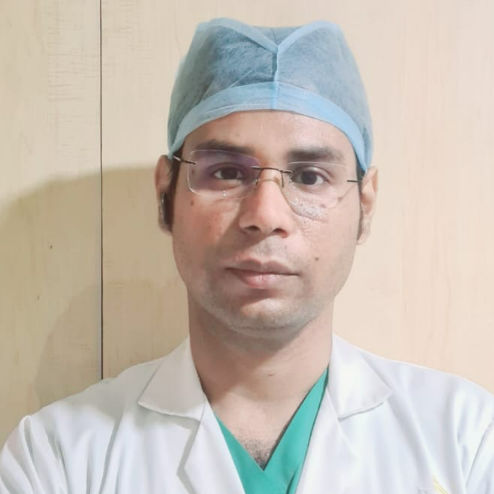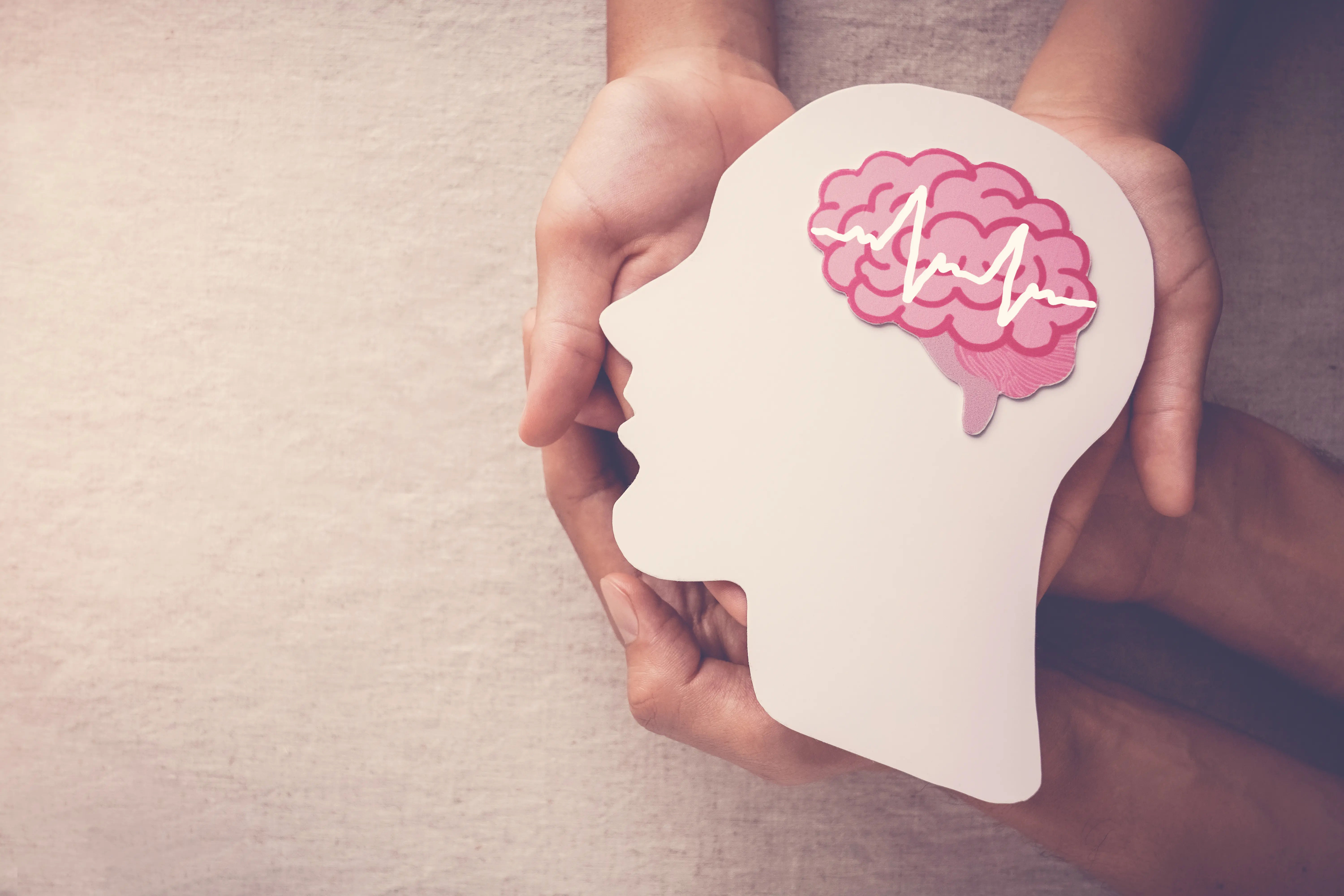Alcohol and Stroke: Understanding the Link and Reducing Your Risk
Learn how alcohol affects your risk of stroke and discover practical ways to reduce that risk. Understand the link between alcohol consumption, high blood pressure, atrial fibrillation, and stroke prevention.

Written by Dr.Sonia Bhatt
Last updated on 13th Jan, 2026

Introduction
A stroke occurs when blood flow to part of the brain is interrupted. This can occur because a blood vessel becomes blocked by a clot (an ischemic stroke) or because a blood vessel bursts (a hemorrhagic stroke). The effects of a stroke can be devastating, and they can impact everything from movement and speech to memory and overall quality of life.
While there are risk factors for stroke that you can’t change—like your age, genetics, or family history—there are many things you can do to reduce your stroke risk. One of the most impactful factors is alcohol consumption.
How Alcohol Affects Stroke Risk
Alcohol has several effects on the cardiovascular system, including the heart and blood vessels. These effects can raise your risk of stroke in different ways. Here’s a closer look at how alcohol can affect your health:
1. High Blood Pressure (Hypertension)
High blood pressure is one of the leading causes of stroke. Alcohol consumption can contribute to high blood pressure in several ways. For starters, drinking alcohol—especially in large amounts—can cause your blood pressure to spike. Chronic heavy drinking can also lead to sustained high blood pressure over time. This increased pressure in the blood vessels makes them more likely to rupture or become blocked, both of which can lead to a stroke. Even moderate drinking can cause temporary spikes in blood pressure, which, over time, can add up and increase your overall stroke risk.
2. Atrial Fibrillation (AF)
Atrial fibrillation (AF) is an irregular heartbeat that increases the risk of blood clots forming in the heart. These clots can travel to the brain and block blood flow, leading to an ischemic stroke. Alcohol consumption, especially binge drinking, is known to trigger episodes of AF. People who have a history of AF or are prone to it may find that frequent drinking episodes make the condition worse and further increase their risk of stroke.
3. Blood Clotting and Alcohol’s Thinning Effect
Moderate alcohol consumption can have a blood-thinning effect, which in some cases can help reduce the risk of blood clots. However, excessive alcohol consumption can reverse this benefit. Chronic heavy drinking can increase the risk of clot formation in the blood vessels, including those in the brain. When a clot blocks blood flow to the brain, it causes an ischemic stroke.
4. Damage to Blood Vessels
Heavy drinking over time can weaken the walls of blood vessels, making them more likely to burst. This can lead to a hemorrhagic stroke, where bleeding occurs inside the brain. The more you drink, the more strain you put on your blood vessels, making them more vulnerable to rupture. Additionally, alcohol increases the risk of high blood pressure, which further contributes to the likelihood of blood vessels breaking. Chronic heavy drinking causes structural changes in the blood vessels, which increases the risk of both ischemic and hemorrhagic strokes.
5. Obesity and Metabolic Syndrome
Alcohol is calorie-dense, and excessive drinking can lead to weight gain. Obesity is a significant risk factor for stroke because it can contribute to other conditions like high blood pressure, diabetes, and high cholesterol—all of which increase the chances of having a stroke. In addition to promoting weight gain, alcohol also raises the risk of metabolic syndrome—a cluster of conditions including high blood sugar, excess fat around the waist, high cholesterol, and high blood pressure. These factors can increase the risk of both stroke and heart disease.
How Much Alcohol is Safe?
It’s essential to understand how much alcohol is safe to drink to manage stroke risk effectively. The relationship between alcohol and stroke is complex, but moderation is key. Here’s what you need to know:
Moderate Drinking: Moderate drinking is generally considered to be no more than 14 units of alcohol per week, spread out over at least three days. One unit of alcohol is roughly equivalent to half a pint of beer or a small glass of wine. For most people, moderate drinking is associated with a lower risk of stroke compared to heavy drinking, as it’s less likely to raise blood pressure, trigger irregular heart rhythms, or cause damage to blood vessels.
Binge Drinking and Heavy Drinking: Binge drinking is defined as drinking a large amount of alcohol in a short period—more than eight units for men or six units for women in one sitting. Binge drinking significantly increases stroke risk by causing spikes in blood pressure, triggering irregular heart rhythms, and increasing clot formation. If you’re concerned about your stroke risk, avoiding binge drinking is crucial. Limiting heavy drinking is one of the best ways to reduce your stroke risk.
Alcohol and Stroke Recovery
If you’ve already had a stroke, drinking alcohol can complicate your recovery. Alcohol can impair cognitive function, making it more challenging to engage in rehabilitation activities and stick to therapy. It can also interfere with medications designed to prevent another stroke or manage symptoms. For stroke survivors, alcohol consumption is associated with a higher likelihood of having another stroke and poorer overall recovery.
How to Reduce Stroke Risk Related to Alcohol
By managing alcohol intake, the risk of stroke can be significantly reduced. There are some practical steps to lower the stroke risk related to alcohol:
Track Your Drinking: Start by keeping track of how much you drink. You can use a smartphone app or write it down in a journal. If you notice that you're drinking more than the recommended limits, try to cut back gradually. Being mindful of your drinking habits is the first step toward managing your stroke risk.
Practice Moderation: Moderation is key when it comes to alcohol consumption. Instead of binge drinking, try to spread your alcohol intake out over several days. This helps maintain a stable blood pressure and reduces your overall stroke risk. Avoid drinking large amounts at once, and if you’re not sure if your drinking is within safe limits, it’s a good idea to talk to your doctor.
Take Regular Breaks from Alcohol: Consider taking regular breaks from alcohol. For example, you could choose to go alcohol-free for a month or reduce your intake during certain months of the year. These breaks allow your body time to recover from the effects of alcohol and help you assess whether you need to make long-term changes to your drinking habits.
Live a Healthy Lifestyle: Alcohol is just one piece of the puzzle when it comes to stroke prevention. A healthy lifestyle that includes a balanced diet, regular exercise, and stress management can reduce your overall stroke risk. By taking care of your heart and brain health, you’re not only reducing your stroke risk, but you’re also improving your quality of life.
Seek Support if Needed: If you’re struggling to reduce or stop drinking, don’t hesitate to seek professional support. Therapy, counselling, or support groups can help you make lasting changes to your drinking habits and lower your risk of stroke.
Conclusion
Alcohol plays a significant role in increasing stroke risk. It raises blood pressure, contributes to irregular heart rhythms, damages blood vessels, and leads to conditions like obesity and metabolic syndrome—each of which can increase your chances of having a stroke. Moderate drinking is generally associated with a lower stroke risk, but excessive drinking is a significant risk factor. By tracking your drinking, practising moderation, and making healthy lifestyle choices, you can reduce your risk of stroke and improve your overall health. It’s not just about cutting back on alcohol—it’s about making smarter, healthier choices to protect your brain and heart for the long term.
Consult Top Neurologists
Consult Top Neurologists

Dr. Aditendraditya Singh Bhati
Neurosurgeon
21 Years • MBBS(2004), DNB Neurosurgery(2014); MNAMS; Fellow Skull Base Endoscopy (Italy), Fellow Extended Skull Base ( Weill Cornell, USA), Fellow ZAP-X Radiosurgery. Member of American Association of Neurological Surgeons
Delhi
Apollo Hospitals Indraprastha, Delhi
(100+ Patients)

Dr. Ganeshgouda Majigoudra
Neurologist
10 Years • MBBS, MD ( GENERAL MEDICINE) DM (NEUROLOGY)
Bengaluru
Apollo Clinic, JP nagar, Bengaluru

Dr. E Prabhakar Sastry
General Physician/ Internal Medicine Specialist
40 Years • MD(Internal Medicine)
Manikonda Jagir
Apollo Clinic, Manikonda, Manikonda Jagir
(150+ Patients)

Dr Debnath Dwaipayan
Neurosurgeon
9 Years • MBBS, MS(Gen. Surgery), DrNB (Neurosurgery)
Delhi
Apollo Hospitals Indraprastha, Delhi

Dr. Meena Gupta
Neurologist
49 Years • MBBS, MD (Paediatrics), DM (Neurology)
Gurugram
APOLLO SUGAR CLINICS GURUGRAM, Gurugram




